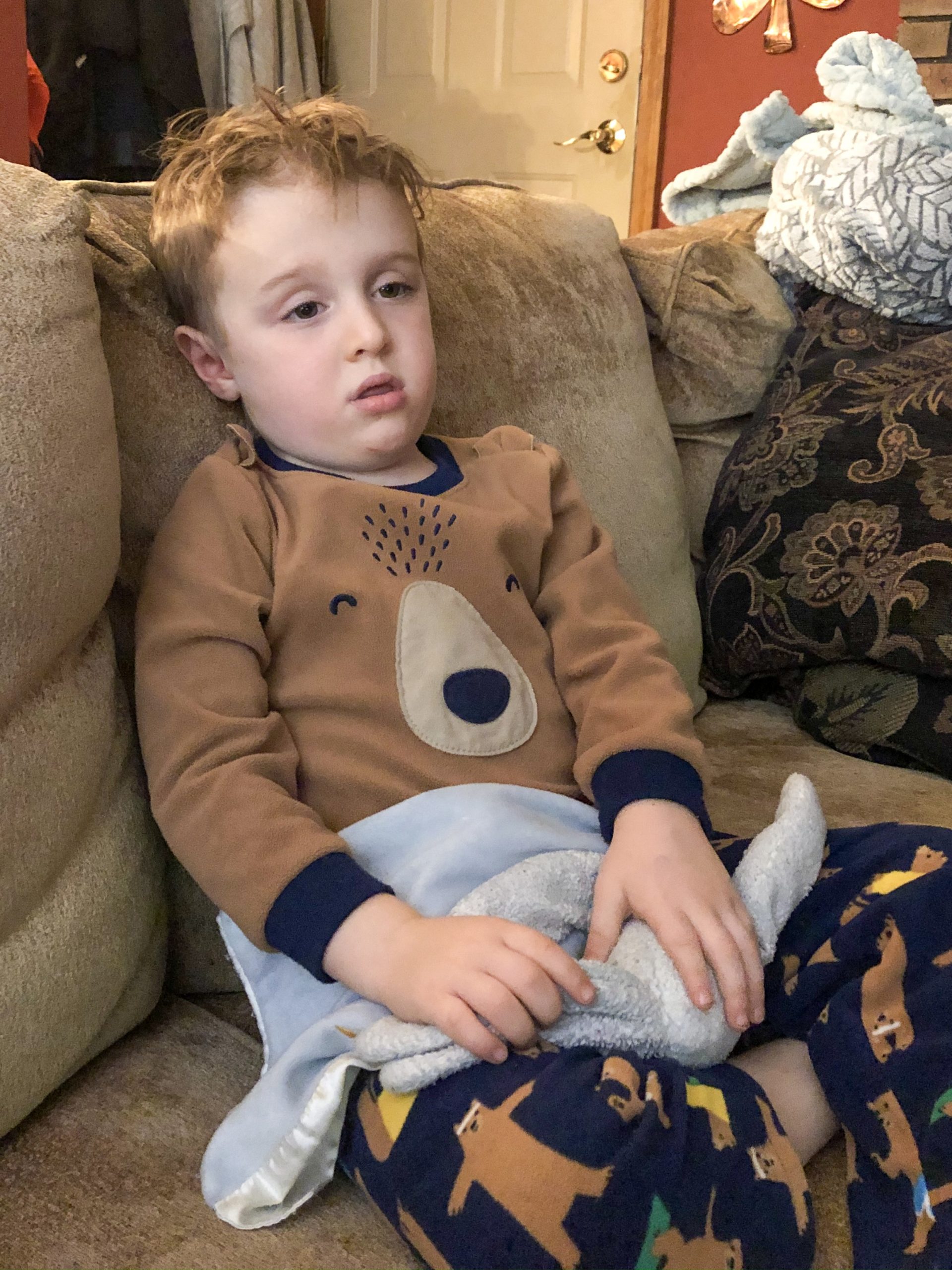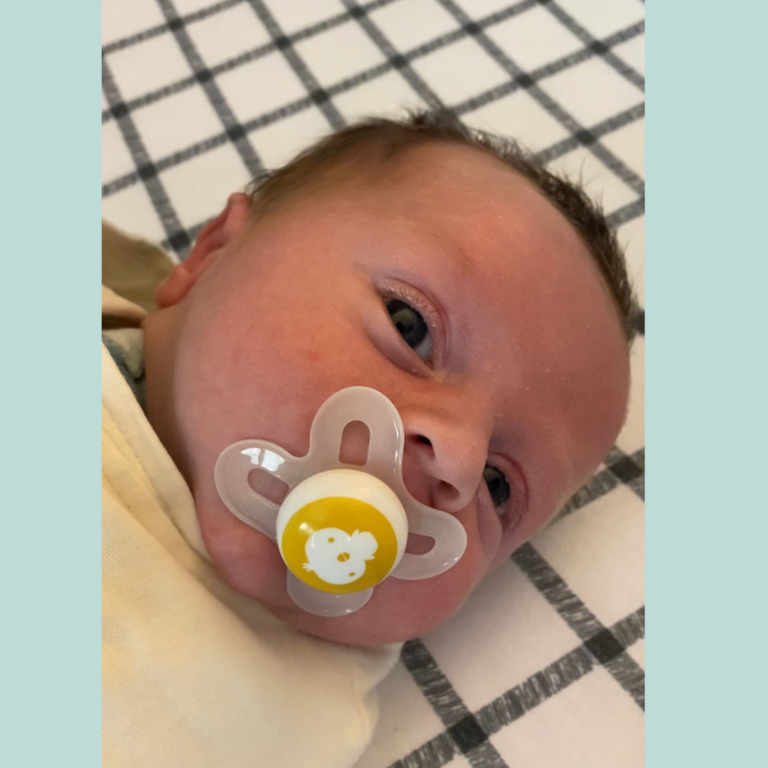Signs of an Overtired Baby
The fine line between being tired versus overtired.
The key is to learn your baby’s sleep cues and put your baby down for bed or a nap before they show signs of being overtired!
Once your baby becomes overtired they will have more trouble falling and staying asleep resulting in more tears. An overtired baby tends to have more restless sleep, short naps, and wake up more often overnight.
Learning your baby’s sleepy cues and wake windows starting in the newborn period will help you find the sweet spot for sleep! This starts in the newborn period and is something you will need to continually monitor for as your baby gets older.
Not sure what your baby’s general wake windows should be?
The Well Rested sleep course includes wake windows for your baby from 4-24 months, nap schedules, strategies to lengthen naps, and sleep through the night.
Why Does an Overtired Baby Have Trouble Sleeping?
When your baby becomes overtired they are past the point of accepting sleep…meaning you may be spending A LONG time trying to get your baby to sleep even though they are beyond exhausted!
Your baby’s stress response system will be activated and their body will release stress hormones like cortisol and adrenaline. These hormones make it hard for your baby to relax and calm down.
An overtired baby or toddler will take longer to settle for bedtime and naps, experience more frequent wake ups overnight, and are more likely to experience early morning wake ups.
Signs your Baby is Overtired
Signs your baby is in an overtired state:
Baby
- Yawning
- Rubbing eyes
- Looking wired
- Becoming fussy
- Becoming rigid
- Inconsolable cry
- Clingy
Toddlers
- Increase in meltdowns/tantrums (toddler)
- Becoming physical
- Pouting
- Zoned out
- Hyperactivity
- Excessive energy
How can you help your baby?
When your baby is overtired you want to try to calm them down before trying to get them to sleep if they are crying inconsolably.
After your baby is calm, initiate your sleep routine for bedtime or nap time to cue their brain that it’s time for sleep. Swaddle your baby if you have a newborn.
If your baby is overtired due to a day of short or skipped naps put your baby down for bed 30-60 minutes earlier than usual.
Short Term Strategies to help your overtired baby
These strategies can help to calm your child so their body can accept sleep:
- Take into a dark room
- Turn on white noise
- Rocking/swaying
- Feeding
- Humming/singing
- Hugging and holding your baby
Try to avoid feeding, rocking, or holding your baby completely to sleep in these situations. I know how hard this can be when you’re desperate for sleep, but an overtired baby is much more likely to develop a parental led sleep association if they routinely struggle to fall asleep!
Long term strategies to help your overtired baby
These strategies are helpful for all children to improve their sleep, but especially important if your child is in an overtired state of sleep debt:
- Initiate consistent sleep routines–One of the most powerful tools to signal sleep!
- Follow age-appropriate wake windows and reevaluate each month
- Ensure your baby or toddler is frequently feeding throughout the day so they don’t wake out of hunger
- Prioritize naps
- Support and extend short naps if your baby is a chronic cat napper and is cranky and fussy during the day
- Try adjusting bedtime earlier by 30-60 minutes for 1-2 weeks to help with chronic sleep debt
- Work on independent sleep starting at bedtime
Overtired Baby and Sleep Debt
If your baby is waking frequently overnight and missing naps they are more likely to be in an overtired state of sleep debt. This cycle repeats itself each day as your baby can’t overcome the overtired state thus perpetuating the short nap cycle and disrupted overnight sleep.
Sleep debt has real effects..usually most noticeable as a fussy and irritable baby or toddler.
Restorative sleep regulates our appetite, allows for optimal growth, improves mood, and restores energy in young children. Not getting enough sleep each night can have negative consequences for your child. These cannot always be erased with extra sleep the next night.
Over time, not getting enough quality sleep each night can produce a range of behavioral, cognitive, and emotional symptoms. These can include moodiness, irritability, impulsivity, and stress.
resources to help your family with sleep
If your baby is an overtired cycle and you’re ready to feel well rested again, I have a class for you. The 4-24 Month Well Rested Collection will walk you step-by-step through a completely customizable sleep training experience. In just a few weeks, your baby will be getting 11-12 hours of independent night sleep, AND you’ll have a plan to navigate any future regressions or bumps in your journey. I’ll also help you set up a daytime routine and nap schedule that fits your family’s lifestyle. And you’ll get age-specific guidance to meet your baby right where he or she is developmentally at every stage from now until your baby turns 2.
I also offer 1:1 personalized sleep coaching to families starting at 4 months of age! I have multiple options that can help you get your sleep back on track!
Please Share this Post with a Mama!






